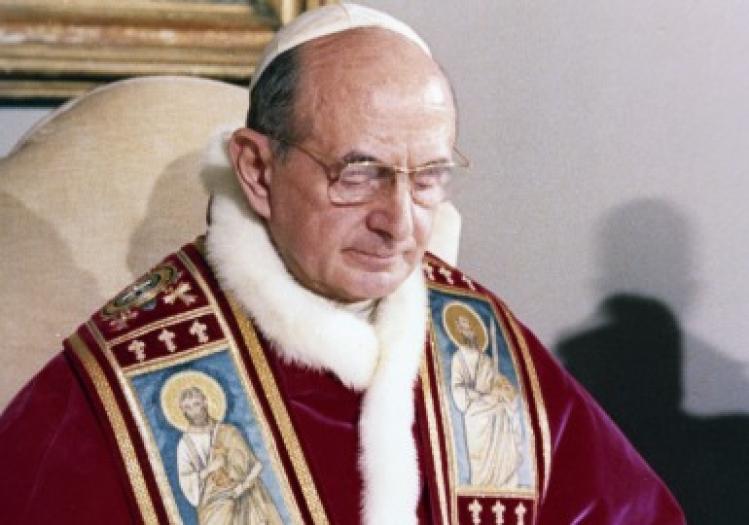
Over the past quarter-century, Catholics who support Humanae Vitae have done a superb job articulating the ways their adherence to church teaching against contraception fits into their view of family life. For example, Helen Alvaré, professor at George Mason Law and former spokeswoman for the U.S. Catholic bishops, recently edited a volume titled Breaking Through: Catholic Women Speak for Themselves. The book showcases ten accomplished women who fully accept church teaching on sexual morality, situating their lives and vocations within a larger context of religious belief.
Are we likely to see a similar volume from Catholic women who believe the responsible use of birth control is compatible with their faith and their vocations as wives any time soon? I doubt it. This large cohort of Catholic women is largely silent. And who could blame them?
The ecclesiastical climate has chilled considerably in the forty years since Pope Paul VI issued Humanae Vitae. At the time the encyclical was published, the use of contraception by married couples was still seen by most prelates as a matter on which people of good faith could disagree. That began to change under John Paul II, who treated contraception as the doorway to the “culture of death.” Proponents of his “Theology of the Body” maintain that spouses who use contraception are lying to one another with their bodies and withholding themselves from one another in the sexual act. This hardly encourages respectful conversation with Catholic couples who find contraception morally acceptable.
The theological climate has shifted too. Many of today’s emerging Catholic moralists were drawn to their field by the examples of Pope John Paul II and Pope Benedict XVI. They accept and defend the teaching against contraception. And those who don’t accept it do well to maintain a prudent silence. The ecclesiastical actions taken against Charles Curran, Elizabeth Johnson, and Margaret Farley have had a chilling effect on academic discussion of sexual morality.
In short, over the past twenty years, Catholic bishops have largely squelched open debate among their people about the morality of contraception. Many have worked to thwart frank discussion about what Catholic parents owe their marriages, their children, and other vocational commitments they have apart from family. If the price of admission to this crucial conversation is adherence to Humanae Vitae, then nine out of ten Catholic couples aren’t qualified to say a word.
Obviously, those who dissent from Humanae Vitae have cause to lament this state of affairs. But those who support church teaching also have reason to be worried, because it encourages a type of compartmentalization that is fundamentally foreign to the Catholic tradition. If people are not encouraged to reflect on their normative commitments in a holistic manner, they tend to segregate them from one another. They put the church in one box, marriage and family life in another. Catholics who compartmentalize their moral commitments risk isolating themselves from the considerable wisdom of the tradition on matters of sex, love, and embodiment. A church that encourages such compartmentalization is hardly catholic. How can that kind of church interpret the complexities of our world? How can it avoid being seen as one more commitment among many others, just something to do for an hour on Sundays?
So instead of ignoring ordinary Catholics who use contraception, it would be better for the church to encourage them to articulate how their views can be seen as consistent with the deepest insights of the tradition. Encourage them to read Humanae Vitae. But also encourage them to read the Majority Report of the Birth Control Commission—convened by Paul VI—which tried to show that church teaching on contraception could be authentically developed.
Most progressive Catholics hope the Majority Report position will eventually win the day, just as Vatican II’s defense of religious liberty superseded the condemnation of that freedom in the Syllabus of Errors. But winning the day takes work. John Courtney Murray, SJ, worked to show how religious liberty was consistent with the Catholic tradition. John Noonan’s magisterial volume Contraception (1968) did much the same thing for birth control. As that book approaches its fiftieth anniversary, it’s time to reread it.
Progressive Catholics need to make sure that the next generation can situate their argument within the Catholic moral tradition, rather than presenting it in a purely secular manner. Does that mean a lot of conservatives—including “John Paul II” bishops—are going to welcome such arguments with open arms? Of course not. They’ll still call those Catholics dissenters. But at least they will be dissenters engaged in the tradition, not cordoned off from it.
